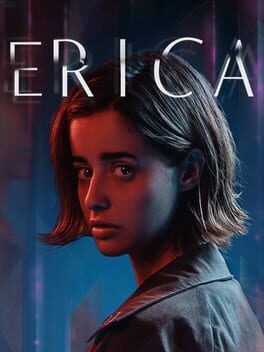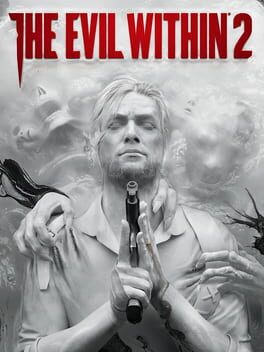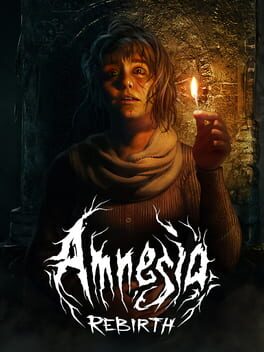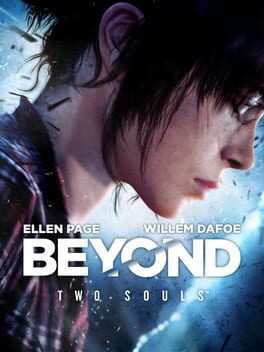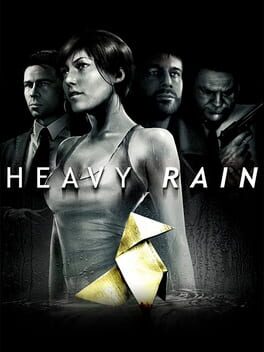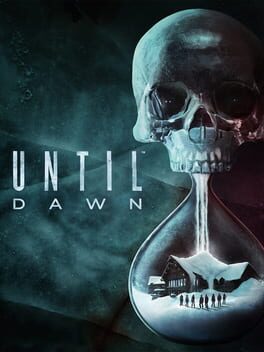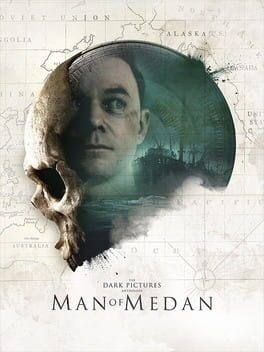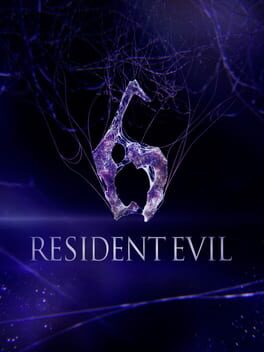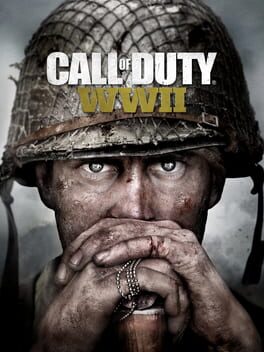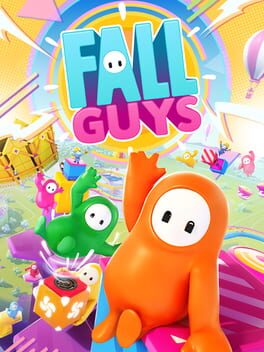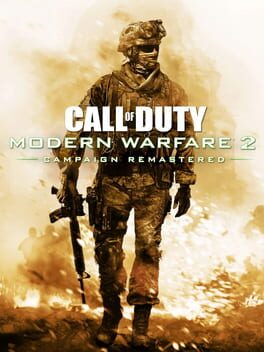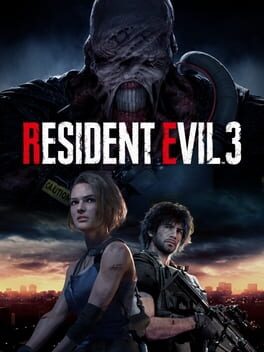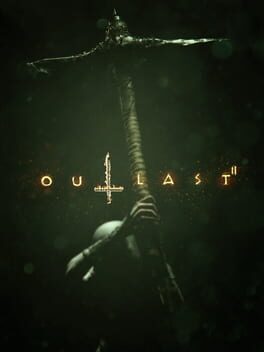pulpfuertes
2019
2017
A lot of dumb zombie bullshit for what amounts to the custody battle for the ages! Anyways, so much of this contains strong, superficially creative threads but overall lacks the off-kilter direction and wonky tone that defined the unforgettable unpredictability of the previous entry; despite its detrimental flaws that is. However this sequel definitely feels like an attempt to gradually parse out the downright inscrutability of the first while remaining accessible enough for the masses. It is actually quite successful at that for the most part as it adopts a uniquely open world survival horror mold. It is unfortunate that much of the material that fills this mold is more of the same shit you see in most other AAA titles, but that this tries something bold from the get is interesting. Its linear portions are propulsive and slowly progressing through the open areas had its rewards. Its a shame that this gameplay loop runs its course by the midway point (you'll know exactly when lol) and by then you still have at least another eight hours of story to trudge through. This beast is just entirely too long. All in all though it remains a AAA horror blockbuster devoted to actual ideas and character development and world building so for me, that is enough to warrant a single playthrough even if it relies too much on this bland functionality over the radical artistry of the first. I doubt I'll ponder on it much after a few days but I'd recommend it to those that need something competently creepy and gratifying but unlike its predecessor, not completely oppressive and unapproachable. It's a fun time waster.
2020
Colonialism and its cyclical bloodshed, dying civilizations and crumbling empires, eternal darkness and the suffering that exists within it, primitive regression, fertility and motherhood. Amnesia: Rebirth runs the symbolic and thematic gamut of fragmented ideas that tie in to the over arching theme of insanity in its different connotations; moral and ethical, mystic and cosmic, inner and outer and the intertwining of all these.
Had a mental flash of this game before going to bed and now here in the dark I can’t stop thinking about it. It’s something that’s only going to continue growing in my mind and I believe public stature over time. Let down by the expectations of those either looking for another Soma or another Amnesia, this forgoes both the existential dread of the former and the stream-ready scares of the latter in lieu of something slower and more intimate in scale. It is unfortunately shortsighted at times in regards to its match mechanic which felt like a cheap way to drum up tension in an already effectively claustrophobic and fear inducing setting but it nonetheless contributes to the game’s endlessly frantic pacing. It is exhausting to play this but seeing as we are playing a pregnant woman (Tasi, stunningly performed by Alix Wilton Regan) it may be entirely the point for it all to feel so laborious. And how invigorating to see something so indebted to its main character and her feelings and reactions to the world around her. The internal monologue is at once anxiously realistic as it is frequently silly. What I love about this game is how it sets itself up so slowly and yet plunges the player head first into a plethora of heady concepts and outlandish imagery. While it may not all seem cohesive at first, it is in the patient unveiling of subdued details that Frictional Games’ mastery at world building shines through. This is probably their most confident effort yet even if some age old problems slip through the cracks (janky controls and some dated graphics). It didn’t quite hit me as hard as Soma initially did but the finale where the answers are eventually found and the haunting final shot (“Iconoclast” ending) has propelled this into special territory for me. Despite my doubts that gameplay and story elements of the game would fully come together or function to the best ability, I was won over by how streamlined and varied the overall experience was. Not particularly scary, but had my heart leaping out of my chest through pure intensity. Many times I thought I was doomed, only for that sliver of hope to appear. It is easy to feel maddened by this loop but it truly is Tasi that keeps it all grounded in bittersweet optimism.
Had a mental flash of this game before going to bed and now here in the dark I can’t stop thinking about it. It’s something that’s only going to continue growing in my mind and I believe public stature over time. Let down by the expectations of those either looking for another Soma or another Amnesia, this forgoes both the existential dread of the former and the stream-ready scares of the latter in lieu of something slower and more intimate in scale. It is unfortunately shortsighted at times in regards to its match mechanic which felt like a cheap way to drum up tension in an already effectively claustrophobic and fear inducing setting but it nonetheless contributes to the game’s endlessly frantic pacing. It is exhausting to play this but seeing as we are playing a pregnant woman (Tasi, stunningly performed by Alix Wilton Regan) it may be entirely the point for it all to feel so laborious. And how invigorating to see something so indebted to its main character and her feelings and reactions to the world around her. The internal monologue is at once anxiously realistic as it is frequently silly. What I love about this game is how it sets itself up so slowly and yet plunges the player head first into a plethora of heady concepts and outlandish imagery. While it may not all seem cohesive at first, it is in the patient unveiling of subdued details that Frictional Games’ mastery at world building shines through. This is probably their most confident effort yet even if some age old problems slip through the cracks (janky controls and some dated graphics). It didn’t quite hit me as hard as Soma initially did but the finale where the answers are eventually found and the haunting final shot (“Iconoclast” ending) has propelled this into special territory for me. Despite my doubts that gameplay and story elements of the game would fully come together or function to the best ability, I was won over by how streamlined and varied the overall experience was. Not particularly scary, but had my heart leaping out of my chest through pure intensity. Many times I thought I was doomed, only for that sliver of hope to appear. It is easy to feel maddened by this loop but it truly is Tasi that keeps it all grounded in bittersweet optimism.
2013
While the scrambled narrative is more ambitious and dramatically effective than Heavy Rain that fact also makes this all the more dull to power through even if it has a semblance of experienced maturity in how it handles its characters and storyline. Trade-offs, I guess. It loses the cornball excitement of Heavy Rain but gains one of my favorite protagonists in video games with Elliot Page's Jodie, who plays the role with such intimate rawness and emotional range that despite the game's overwrought melodrama left me near tears multiple times throughout from his performance alone. It's a character that's properly lived in and the game gives plenty of development (albeit perhaps a bit too schematic for my liking) for her to be feel fleshed out. She stands as a refreshingly flawed, vulnerable, but empowered PS3-era icon and I admire Cage's commitment to dressing the structure with emotional stakes rather than cheap thrills. The game certainly indulges itself in more ways than one with said structure, with the majority of child Jodie's chapters feeling superfluous. I wish the game was more episodic hijinx such as "Homeless", "The Dinner" and "Navajo", which showcased the game's strengths as it develops Jodie through her interactions with others rather than just feeding the player forced chapters where we actively partake in the trauma she underwent as an adolescent ("The Party" and "Like Other Girls" are eyerollingly OTT). Dafoe's Nathan is also woefully underdeveloped but an interesting foil to the game's thematic exploration of the afterlife and the spiritual connections that keep these characters tethered to sanity. Wish it went farther with these ideas but as a whole this was more focused on Jodie than anything else so in that I appreciate what's here despite how shaky the end product ended up being. I cannot deny the things that work and the moments that do hit are among Cage's most endearing as a visual storyteller.
2010
A glorious and genuine example of video game camp. So earnestly proud of its narrative self-seriousness, technical innovation, and dedication to a grim atmosphere that it balloons into parody. It couldn't have gone any other way with how the medium was at the time and in ways its cult status is entirely attributed to its dated ridiculousness. Always captivating even if the Norman Jayden chapters grind the pacing to a screeching halt almost every goddamn time. Shame about how the majority of the game plays out because for the first two or so hours there is a touching dynamic between Shaun and Ethan that I found palpable and frankly real. There's a mundanity to how Cage expresses the grief here that moved me. All the button prompts to drink orange juice and prepare weirdly animated pizza dinner for your son felt properly laborious in these sections and accentuated the deep sadness that underscores the game's tone (also in part due to the gorgeously varied score). And then the rest of the game happens and the entire thing devolves into trashy B-movie pulp territory. I like it that way though! There's not many other neo-noir games out there with such passion to be this wholly unbalanced and narratively ill-fated with a straight face.
2015
Aggressively 2015 if that makes any sense. There's few sequences in modern horror more iconic than witnessing Hayden Panettiere, bearing only a towel and a dash of courage, fight off a masked clown lunatic in a labyrinth-esque lodge, consistently escaping his clutches by a hair only to face yet another obstacle in the way. The choice-based gimmick lends itself to fascinating philosophical readings but what interests me the most is how the game's overall framework of being a playable slasher/creature feature deconstructs cinematic language and reworks it to fit with how a player's logistical instincts interprets environmental clues and moments of empathy allowing for complete interactivity and engagement with their choices. There are parts of this that are absolutely excellent even if its first half struggles to maintain footing. Its stark winter aesthetic and clever use of fixed angles traps the player (and the characters they play) in an almost oppressive box of looming mortality. The developers execute this with intensely calculated and visceral visual control, cleverly stacking jump scares, eerily washed out lighting, and tonal shifts with ease. The second half didn't come to be as jarring as before because of how seamless the character progression was and how fluidly everything moves along. When this ensemble transformed from being insufferable and needlessly cruel to being some of the most strong willed protagonists I've ever seen in the genre, it feels like a miracle at work. Some of the stuff here remains as effective as I remember although performance issues such as awkward character model gestures and janky frame rate did hamper the immersion. I'm also not much of a fan of the recaps between episodes but there's a special charm to this game's dated nature. iI's something I'll probably end up returning to again and again in the future until something dethrones it as the prime choice-based horror adventure.
A game to make Tobe Hooper and Lucio Fulci proud. Lo-fi VHS swamp aesthetics, grotesque body horror and musty set dressing all married with uncomfortably clunky mechanics. It’s such a toxic relationship but all things considered makes for one of the most nerve wracking and accomplished horror experiences I’ve had in a minute. Didn’t give as much credit to this before as I should have even if it still fights with minor third act deflation and rough moments of stuffy first person awkwardness (hopefully will be straightened out in Village). Like pretty much every RE the sense of helplessness gives way to the player’s imminent empowerment through powerful weaponry by the end so I wasn’t as annoyed with the ship/mine sections this time around. In the end, I cannot deny that it’s invigorating to see the franchise finally grapple with what it means for a resident to truly be “evil” in a metaphorical sense, even with the ending somewhat missing out on the punchline with its flagrant optimism. Here, Americana is corrupted and manipulated by capitalist overlords, the rural family unit ruptured and grossly replicated, and any semblance of safety stripped. It’s all such seat-shifting excitement that it’s kinda dazzling that it works at all. While it may miss out on being a masterwork on the likes of some of the other entries, Biohazard is nonetheless a fruitful horror game that reminds us how banally unsettling an empty house really is and how terrifying it feels to know that you’re actually not alone and the dread that comes with seeing just how far down the rabbit hole goes. Good shit.
Bargain bin film of the week level stuff. Kinda cynical in that way but it’ll be interesting to see where these games go as they continue to refine and find ways to broaden its interactive horror gameplay. What we have here is not nearly as exciting to play as Until Dawn but the promise of more innovative features is there despite shoddy pacing and stuttering tech performance. The cast isn’t as dynamic but I still found my heart pumping in some of the chase sequences and relentless QTEs. There’s something about what this brand of games offer that fascinate me and keep me coming back. Was hoping for more diversity in how your choices and actions (or lack thereof) based on curiosity and artificial recklessness would impact the character growth and overall consequences. There should definitely be more fluidity but that would require a lot more development time. Its predecessor served as a base model for this but is somehow more complex and challenging. I’ll continue to support this franchise of horror gaming because overall its a medium that has so much potential to churn out strong, psychologically taut material. What‘s here though is infrequently effective jump scares and C-grade storytelling laced with half baked mechanics.
2012
“We’re beyond sympathy at this point. We’re beyond humanity.”
A maximalist, sprawling epic and a disgustingly under-appreciated entry in this increasingly transforming franchise. Packed storylines weave in and out of various perspectives and connect with glowing ferocity, gameplay and thematic elements from past entries are remixed and redefined for a prime convergence of tradition and innovation, and it subliminally sets the groundwork for what would come with the remakes and Biohazard. On top of just being an absolute joy (for the most part) to work through, with bombastic set pieces and crisp gunplay and ridiculous one liners and silliness to be found in every corner, it’s downright the most wistfully romantic and optimistic the franchise has ever been. There’s little to no regard for nuance and restraint and 6 is all the stronger and more singular for that. While it is packed with fascinating vision and consistent creativity in its visual design and structure, it lacks cohesive direction as it feels like a diverse hodgepodge of all the classic Resident Evil tropes while attempting to lay foundation for something new. It’s the expected progression from what 4 and 5 offered even it lacks the compact polish that those two had. However for something of this massive caliber it should be anticipated that it occasionally drops the ball in pacing or makes some of the most awkward decisions I’ve seen in a AAA title. It’s a pioneering experience that feels otherwise unprecedented and yet released in a time when endless content reigned supreme. There’s a sincerity and enthusiasm here to impress that transcends the faux-profound pretensions of what we see nowadays more often than not. Resident Evil 6 is proud of itself and deeply loving of its history, blemishes and all, and chooses to take no prisoners in the process of whisking the player on their grandest and most reckless expression of humanity’s endurance in the throes of seemingly unbeatable odds.
A maximalist, sprawling epic and a disgustingly under-appreciated entry in this increasingly transforming franchise. Packed storylines weave in and out of various perspectives and connect with glowing ferocity, gameplay and thematic elements from past entries are remixed and redefined for a prime convergence of tradition and innovation, and it subliminally sets the groundwork for what would come with the remakes and Biohazard. On top of just being an absolute joy (for the most part) to work through, with bombastic set pieces and crisp gunplay and ridiculous one liners and silliness to be found in every corner, it’s downright the most wistfully romantic and optimistic the franchise has ever been. There’s little to no regard for nuance and restraint and 6 is all the stronger and more singular for that. While it is packed with fascinating vision and consistent creativity in its visual design and structure, it lacks cohesive direction as it feels like a diverse hodgepodge of all the classic Resident Evil tropes while attempting to lay foundation for something new. It’s the expected progression from what 4 and 5 offered even it lacks the compact polish that those two had. However for something of this massive caliber it should be anticipated that it occasionally drops the ball in pacing or makes some of the most awkward decisions I’ve seen in a AAA title. It’s a pioneering experience that feels otherwise unprecedented and yet released in a time when endless content reigned supreme. There’s a sincerity and enthusiasm here to impress that transcends the faux-profound pretensions of what we see nowadays more often than not. Resident Evil 6 is proud of itself and deeply loving of its history, blemishes and all, and chooses to take no prisoners in the process of whisking the player on their grandest and most reckless expression of humanity’s endurance in the throes of seemingly unbeatable odds.
2017
Stale masculine power fantasy without any required pulp or rarely a thrill to be found. Struggles with identifying between its cartoonishly ridiculous antics and its grossly exploitative sentimentalism ("heroic acts", anything involving the squad perk nonsense). Insufferable for the most part but somehow more tolerable than MW2, even if in the slightest. The plane stuff was fun and the French Revolution mission was refreshing, I guess.
2020
Short lived enjoyment. Refreshingly simple to the point of tedium. There’s a charm to that but after playing for about ten hours haven’t felt the urge to return to it in a minute. Good enough though in the moment and I look forward to the inevitable updates to see how they innovate from this base model.
2020
Pure, explosive Cameron-esque bombast and I adored so much of it. An absolute shockwave of zombie spectacle and pulpy bad-assery. Wish some parts were better fleshed out (such as Carlos) and that certain gameplay elements werent recycled (innovation is certainly lacking here which feels out of character for the franchise) but for something that comes together this effectively and maintains a level stability for its entire duration I can't complain too much.
2017
As clumsily executed as it is transgressively playful. Nonetheless remains an intensely harrowing experience headlined by breathtaking sound work and a deliciously grimy visual framework. It's a striking showcase in visceral, hard hitting scares even if it doesn't really have any impact beyond the moment. There are stretches of masterful horror craft here (the mines, the river, blood rain, and the school) but there are more than enough traces of disappointing design choices (wonky level layout, tedious notes/lore bits, useless microphone option, janky controls) that only elicit frustration as the game progresses. For something built and reliant on thrilling chases and an encompassing dread filled atmosphere, issues like those can be detrimental. While it thankfully doesn't think itself to be a deeply profound statement on the innate hypocrisy of religious institution, there is something amusing about a game like this treading into those waters with such earnest pulpy flair. It's certainly a special game; one I could see myself calling great at some point.
Vengeance as a preordained impulse. Ellie exists as an emblem of trauma and the player as the casual observer to her building pain and guilt, only extending a hand to act out her violent and reactionary compulsions through button prompts and extensive combat sections. It's horrifying to witness and partake in, but bleakly honest to how rage can drive a person to the limit of their foundational moral standards. The game doesn't force the player through these tribulations as punishment but to underscore the dissonance between how we perceive a character and what they want and how ultimately the player is rendered powerless against the sheer density of said character's desire to fulfill their own needs. Ellie, as her character is expressed by her creators, essentially is an unstoppable force and for better and worse the player is seemingly culpable in the rampage that follows from years of gathered wounds and the traumatic event that sparks the fire. It's difficult to fully accept how this unwavering dynamic shapes this sprawling, brutal, and droning depiction of the cyclical chain of violence and the endless ripples that emanate but the outcome is a streamlined, urgent, and anxious experience that bravely tests patience and comfort levels.
This game is minutely orchestrated to make us feel the weight of our actions however it's not a shallow critique of the player or the characters as many have labeled it but rather acts as a vehicle for perceptive empathy, where through exploration of its dense cityscape and weaving through religious/militant societies, we form our own thematic narratives of what it means to forgive and to understand what drives a person to animalistic madness in a world beyond saving. You get out of this game what you put in. It can be manipulative and cynical, one that tests the line between acceptably nuanced and crudely exploitative. It's in the viciously realized second half where players will either be moved by the innate thesis of what Druckmann and his team have patiently built up or will emotionally tap out and be disgusted by the extent of which they have chosen to take its nihilism. Once the game barrels towards its unyielding finale, I found myself exhausted but utterly immersed. As the executor of Ellie's monstrosity I had become a mere shell of all the atrocity I had committed throughout the game. As the hypnosis of obsession took hold, it rang in my mind the wailing of grief and shrieks of pain I caused and the haunting stillness of Seattle left in disarray.
On a spiritual level I can understand the disdain towards this. In its searing closing set-piece I found it painfully difficult to go through with the final actions and considered stepping away, out of fear that the entire thematic arc I built up in my mind would fall apart. I was at an emotional impasse in which the developer's concluding decisions skirted between satisfying the majority and sacrificing my good will or coming through with the grand ambition from the rest of the game for something special. For me, they made the right choices in the end. This is a massively self indulgent and exposed work of art not unlike how a filmmaker such as Von Trier or Bergman frame their characters as thematic devices; tools to enact the verbosity of human savagery and suffering. On top of that the rampant crunch culture that infects the industry at large reared its ugly head as I marveled at the masterfully designed visual compositions, intense attention to detail of the city itself, and the peerless facial animations that enhance the already terrific cast (Bailey and Johnson give two of the best performances of the year).
This game, to many's disappointments (and my own initially), ruptures the brilliant ambiguity of the first's ending. Why this works is because this is no longer about whether or not a cure is possible or the moral cost of such a cure, but bluntly asks if this is a world deserving of a cure. Despite humanity persisting through resourcefulness and the binds of community it remains eternally tied to the bonds of systemic oppression. The true villain is the idea that we can ever "go back" to the normality that defined past generations' idea of capitalistic order. Chasing the notion of the "American Dream" amidst the rubble of our destruction. Reality is, as showcased by the divide between communities, nothing has changed. Nature has just taken control and has chosen to wipe away the debt. Flawed ideologies are still rampant but are now weaponized by the primal instincts to survive at all costs. Part II acts as a possessed refraction to the previous entry's concept of the perseverance of hope amidst pastoral landscapes. The first game had giraffes and a colorful "road trip" structure to hammer in the expansive nature of Ellie and Joel's journey. In contrast, this is a pitifully inert plateau crowned by the aching consequences that acting from ardent and undying love alone can bring. The rotted, stinking corpse of aforementioned giraffe.
Anyways, most certainly will be game of the year. I both dread and anticipate the inevitable replay on PS5. I doubt anything from 2020 in all mediums of art (film, tv, music, etc) will effect me as deeply and irrevocably as this.
This game is minutely orchestrated to make us feel the weight of our actions however it's not a shallow critique of the player or the characters as many have labeled it but rather acts as a vehicle for perceptive empathy, where through exploration of its dense cityscape and weaving through religious/militant societies, we form our own thematic narratives of what it means to forgive and to understand what drives a person to animalistic madness in a world beyond saving. You get out of this game what you put in. It can be manipulative and cynical, one that tests the line between acceptably nuanced and crudely exploitative. It's in the viciously realized second half where players will either be moved by the innate thesis of what Druckmann and his team have patiently built up or will emotionally tap out and be disgusted by the extent of which they have chosen to take its nihilism. Once the game barrels towards its unyielding finale, I found myself exhausted but utterly immersed. As the executor of Ellie's monstrosity I had become a mere shell of all the atrocity I had committed throughout the game. As the hypnosis of obsession took hold, it rang in my mind the wailing of grief and shrieks of pain I caused and the haunting stillness of Seattle left in disarray.
On a spiritual level I can understand the disdain towards this. In its searing closing set-piece I found it painfully difficult to go through with the final actions and considered stepping away, out of fear that the entire thematic arc I built up in my mind would fall apart. I was at an emotional impasse in which the developer's concluding decisions skirted between satisfying the majority and sacrificing my good will or coming through with the grand ambition from the rest of the game for something special. For me, they made the right choices in the end. This is a massively self indulgent and exposed work of art not unlike how a filmmaker such as Von Trier or Bergman frame their characters as thematic devices; tools to enact the verbosity of human savagery and suffering. On top of that the rampant crunch culture that infects the industry at large reared its ugly head as I marveled at the masterfully designed visual compositions, intense attention to detail of the city itself, and the peerless facial animations that enhance the already terrific cast (Bailey and Johnson give two of the best performances of the year).
This game, to many's disappointments (and my own initially), ruptures the brilliant ambiguity of the first's ending. Why this works is because this is no longer about whether or not a cure is possible or the moral cost of such a cure, but bluntly asks if this is a world deserving of a cure. Despite humanity persisting through resourcefulness and the binds of community it remains eternally tied to the bonds of systemic oppression. The true villain is the idea that we can ever "go back" to the normality that defined past generations' idea of capitalistic order. Chasing the notion of the "American Dream" amidst the rubble of our destruction. Reality is, as showcased by the divide between communities, nothing has changed. Nature has just taken control and has chosen to wipe away the debt. Flawed ideologies are still rampant but are now weaponized by the primal instincts to survive at all costs. Part II acts as a possessed refraction to the previous entry's concept of the perseverance of hope amidst pastoral landscapes. The first game had giraffes and a colorful "road trip" structure to hammer in the expansive nature of Ellie and Joel's journey. In contrast, this is a pitifully inert plateau crowned by the aching consequences that acting from ardent and undying love alone can bring. The rotted, stinking corpse of aforementioned giraffe.
Anyways, most certainly will be game of the year. I both dread and anticipate the inevitable replay on PS5. I doubt anything from 2020 in all mediums of art (film, tv, music, etc) will effect me as deeply and irrevocably as this.
